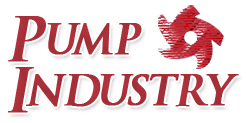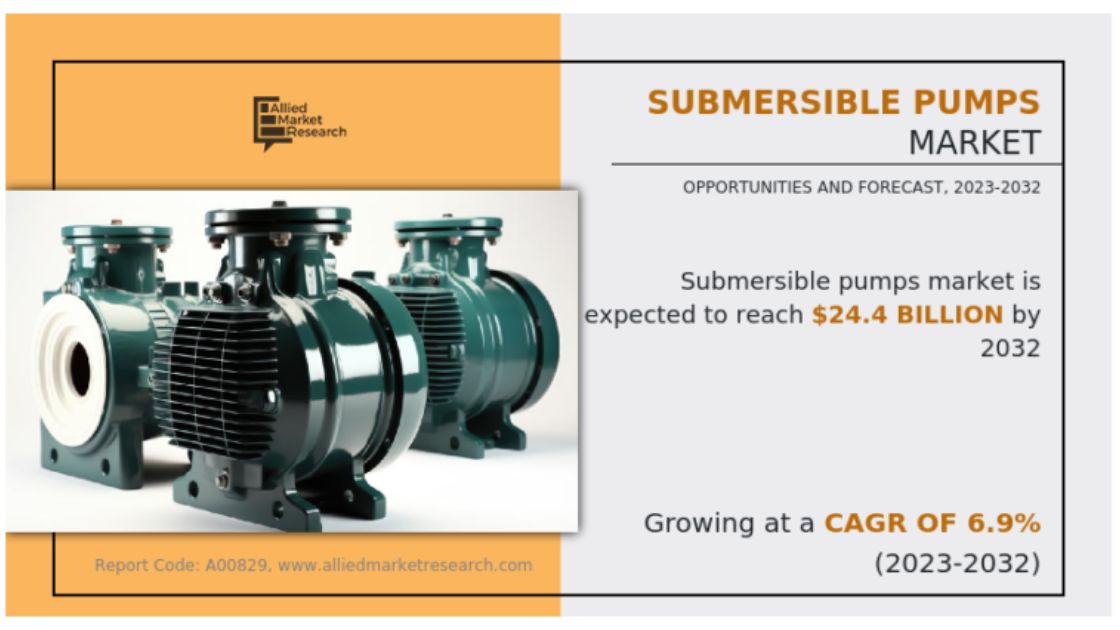Submersible pumps are a type of pump designed to operate underwater, submerged in the fluid they are meant to pump. These pumps consist of a hermetically sealed motor and a close-coupled impeller, which allows them to push fluids to the surface or transport them over distances. They are often used in applications where traditional pumps are not practical due to their ability to handle large volumes of liquid and their resistance to the challenges of working in submerged conditions.
The major players operating in the global submersible pumps market analysis across EBARA CORPORATION, Franklin Electric Co., Inc., Grundfos Pumps India Private Ltd., KIRLOSKAR BROTHERS LIMITED, KSB Limited, Pentair, Sulzer Ltd, TSURUMI MANUFACTURING CO., LTD., WILO SE, and Xylem.
Asia-Pacific collectively was the highest revenue contributor and fastest growing segment estimated to register a CAGR of 7.2%.
Submersible pumps are commonly used in industrial settings to circulate cooling water through machinery and equipment. Maintaining proper temperature control is crucial for the efficient and safe operation of industrial processes. These pumps efficiently move water through heat exchangers, condensers, and other cooling systems, dissipating excess heat and preventing overheating of machinery.
One of the primary submersible pumps market opportunities is in agriculture is for irrigation. These pumps are designed to efficiently draw water from various sources, including wells, rivers, ponds, or reservoirs, and deliver it to agricultural fields. This process is vital for maintaining a consistent water supply, especially in regions where natural rainfall might be insufficient or irregular. The submerged design of these pumps minimizes noise pollution, which is important in agricultural areas near residential communities. Farmers often prefer submersible pumps for irrigation due to their low maintenance requirements, ensuring a dependable and trouble-free watering solution.
Submersible pumps play a critical role in the chemical industry by safely and effectively transferring a variety of corrosive and abrasive fluids. Their hermetically sealed design guarantees no leakage or contamination, prioritizing both safety and product quality. In industries where water needs to be treated and purified, submersible pumps are utilized to move water through filtration and purification systems. These pumps play a vital role in ensuring the quality and purity of water used in various manufacturing processes, such as in the production of pharmaceuticals, electronics, and food and beverages.
On the basis of type, the market is divided into electric, hydraulic, and air driven. As per capacity, the market is categorized into low, medium, and, high. Based on application the market is bifurcated into open pit, and borewell.
Depending on end-use industry, the market is classified into water and wastewater, oil & gas, mining and construction, and others.
On the basis of type, the air-driven is the fastest-growing segment of the submersible pumps market trend in 2022. Submersible air-driven pumps are recognized for their ability to provide specific control over liquid drift rates, making them ideal for applications that require correct management of liquid movement. These pumps are specially precious in laboratories and filtration systems the place managed liquid drift is essential. Submersible air-driven pumps are incredibly lightweight and handy to move, making them suitable for purposes the place mobility is required.
On the basis of capacity, the low is the fastest-growing segment of the submersible pumps market forecast in 2022. Low-capacity submersible pumps are widely used in agricultural irrigation systems. They efficaciously deliver water to plants in a managed manner, supporting to preserve soil moisture and promote plant growth. The submersion of the pump ensures that water is sourced from various depths, making them ideal for distinctive kinds of irrigation methods, from drip systems to sprinklers.
Water recycling and treatment finds a lucrative opportunity in the submersible pumps market growth. Sewage treatment plants play a crucial role in treating wastewater from various sources, including residential, commercial, and industrial activities. Submersible pumps are integral components of these plants, submerged directly into the wastewater to efficiently move large volumes.
A key advantage of these pumps is their effective handling of solids present in wastewater, such as debris and organic matter. This prevents clogging and damage to equipment. The sealed design of submersible pumps minimizes the risk of leakage, preventing environmental contamination. With increasing environmental awareness, industries are adopting water recycling practices, and submersible pumps are essential in industrial water recycling systems for efficient water management and sustainability.
Water quality and contaminants are a challenge to the market. Contaminants in water, both natural and human-induced, pose challenges for submersible pumps. Natural contaminants like iron and manganese can lead to corrosion, compromising pump performance. The intricate parts of submersible pumps are susceptible to clogging when contaminants accumulate, hindering water flow and causing overheating. Water quality issues significantly impact pump performance in various applications, such as agriculture and industrial processes. To ensure efficient operation and longevity, regular maintenance, water testing, and appropriate treatment methods are crucial for submersible pumps in water management across different sectors.



